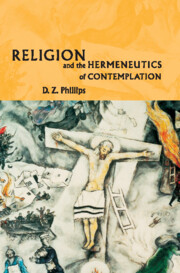Book contents
- Frontmatter
- Contents
- Preface and acknowledgements
- 1 Hermeneutics and the philosophical future of religious studies
- 2 Bernard Williams on the gods and us
- 3 Hume's legacy
- 4 Feuerbach: religion's secret?
- 5 Marx and Engels: religion, alienation and compensation
- 6 Tylor and Frazer: are religious beliefs mistaken hypotheses?
- 7 Marett: primitive reactions
- 8 Freud: the battle for ‘earliest’ things
- 9 Durkheim: religion as a social construct
- 10 Lévy-Bruhl: primitive logic
- 11 Berger: the avoidance of discourse
- 12 Winch: trying to understand
- 13 Understanding: a philosophical vocation
- Index of names
- Index of subjects
9 - Durkheim: religion as a social construct
Published online by Cambridge University Press: 03 December 2009
- Frontmatter
- Contents
- Preface and acknowledgements
- 1 Hermeneutics and the philosophical future of religious studies
- 2 Bernard Williams on the gods and us
- 3 Hume's legacy
- 4 Feuerbach: religion's secret?
- 5 Marx and Engels: religion, alienation and compensation
- 6 Tylor and Frazer: are religious beliefs mistaken hypotheses?
- 7 Marett: primitive reactions
- 8 Freud: the battle for ‘earliest’ things
- 9 Durkheim: religion as a social construct
- 10 Lévy-Bruhl: primitive logic
- 11 Berger: the avoidance of discourse
- 12 Winch: trying to understand
- 13 Understanding: a philosophical vocation
- Index of names
- Index of subjects
Summary
ANTI-ANIMISM
In discussing Tylor, Frazer, Marett and Freud, we have seen how the question of the origins of religion loomed large in their analysis. To some extent, I have chosen not to dwell on this fact, preferring to treat their appeals to origins as discussions of concept-formation in religion. Nevertheless, it is important to bring out the logical difficulties involved in giving the individual's wishes the kind of priority we find in these thinkers; a priority which allows them to make social institutions and movements the product of an individualistic psychology. We saw, in chapter 7, how Marett wrestled with these problems without resolving them satisfactorily. At the end of the last chapter, we saw the difficulties reach a culminating point in Freud's thought in the implication that infants make society. Anderson's criticisms of this claim are unanswerable. He shows how no adequate account of a culture can be given in individualistic terms; it cannot be shown to have its genesis in pre-social instinctual wishes in the individual.
These logical criticisms have a more general application, as seen in the critique of social contract theories in political philosophy. Despite their variety, the essential claim of such theories is that society comes into being as the result of frustrations experienced by individuals in a pre-social state. In order to alleviate their condition, it is argued, individuals agree to a contract which obliges them to live together in social co-operation. The social contract is a special contract, since, in some sense, it is one which established the very possibility of agreement and co-operation between people.
- Type
- Chapter
- Information
- Religion and the Hermeneutics of Contemplation , pp. 229 - 246Publisher: Cambridge University PressPrint publication year: 2001



